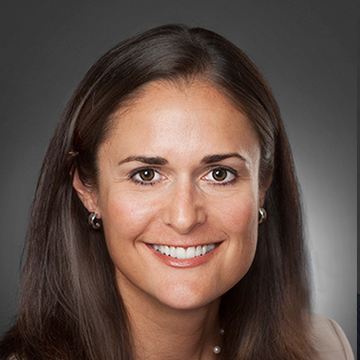
By Dannell Stuart, CFP®, CHFC®, CLU®, CASL®
Partner, Client Advisor and Director of Business Development
A friend recently asked me if I would sit down with her and her two sons to talk about the most important financial lessons they should consider as they start to plan their future. The older one was getting ready to start college, with the younger one just a few years behind. Of course I jumped at the chance to inspire these young minds with steps they can take now to help ensure their financial security! There are few things that I enjoy talking about more than the importance of prudent financial management.
As we all know, there isn’t enough of this type of discussion in our schools. With the myriad of information being dumped on us every day, it can become difficult to know where to begin. This becomes no less true even after we are no longer teenagers!
Below are some of the lessons we discussed.
Saving and Investing
Why save? Having a “rainy day fund” for unexpected financial setbacks such as a large car repair or a loss in job or income is instrumental in creating peace of mind. It’s not whether we will face financial hardships, but when. Having money in the bank to cover obligations will give you time to explore solutions and begin taking next steps toward a remedy. Keep money in the bank not because you’ll earn a whopping 1% on it, but because it will be liquid and available when you need it most. Let’s face it, borrowing money from a family member or using a credit card cash advance option are not likely your ideal sources for emergency funds. Lesson: create and maintain an emergency fund with between 3-6 months of living expenses.
<nbsp;>
Why invest? To try to fight inflation and to take advantage of compound interest. Due to the powerful effects of rising costs, or inflation, the value of your money will lose purchasing power over time. One way of mitigating this loss is to invest funds in something that will keep pace with or hopefully exceed inflation. The power of compound interest is the icing on that investing cake! Compound interest simply means that you earn interest on your interest. Over a period of time, compounding has a snowball effect. Therefore, the sooner you start investing, the more time and potential your investments have for growth. Compounding helps you get to your goals more quickly because it is doing some of the heavy lifting for you! Lesson: start investing ASAP. Even a very small amount invested can add up to a large sum of money if you start early.
<nbsp;>
What is the difference between saving and investing? Generally speaking, investing is appropriate for financial goals that are at least 3 years away. Because investing often involves investments that change in value on a daily basis, it’s important to give the investment time to make up any short-term losses that may occur. However, for any short term goals, where you are going to need the funds in 3 years or less, saving in a savings account, money market, or CD makes the most sense because you do not have to worry about any ups and downs or be forced to sell the investments while they are at a temporary loss. Lesson: Write down your top 1-3 short-term financial goals and your top 1-3 long-term financial goals. Prioritize these goals and then sit down with your budget to determine how much you can earmark each month toward these goals.
Protecting your Credit
 You may not know it yet, but one of your most valuable assets is also one of your most threatened assets. Your credit is an integral part of your financial future. Having a good credit score is going to open doors for you while also lowering the interest cost of funds you may need to borrow in the future. Most lenders use credit scores to evaluate your creditworthiness. Landlords and even employers may look to your credit score to determine your worthiness for an apartment or for a job. Here are a few tips on how to best protect your credit.
You may not know it yet, but one of your most valuable assets is also one of your most threatened assets. Your credit is an integral part of your financial future. Having a good credit score is going to open doors for you while also lowering the interest cost of funds you may need to borrow in the future. Most lenders use credit scores to evaluate your creditworthiness. Landlords and even employers may look to your credit score to determine your worthiness for an apartment or for a job. Here are a few tips on how to best protect your credit.
-
- Be current on your payments. Lenders assume that if you have made timely utility or credit payments in the past, you are likely to do so in the future. Lesson: get your name on some household utilities and put all payments on auto-pay so you do not have to worry about missing any deadlines.
<nbsp;>
-
- You may need to actually take out credit in order to build a credit history. Having no credit is not necessarily the best thing you can do for your credit score. Consider getting a credit card with $0 annual fee that you either use not at all or only if you can pay the balance off each month. This will help you establish a credit history. Lesson: take out a $0 annual fee credit card and use it for just a few small charges each month that you know will be easy for you to pay.
<nbsp;>
-
- Other than for the reason described in #2 above, do not take out credit that you do not need. Student loans may present very attractive terms, but if you do not need the money you are better off not taking it! Lesson: send all unsolicited offers either to the shredder (if they come in the mail) or to your email trash folder.
<nbsp;>
-
- Too many credit inquiries can also hurt your credit. Lesson: try not to apply for new credit unless you are really considering following through on taking it.
<nbsp;>
- Check your credit report for uncorrected errors and identity theft. Unfortunately, identity theft is rampant and extremely time consuming to resolve. Lesson: be proactive by getting your free annual credit report at www.freecreditreport.com. You may even consider signing up for a credit monitoring service to prevent future identity theft. Most people who have experienced identity theft will tell you that a monthly investment in a credit monitoring service is very worth the while!
Start saving for retirement, now!
I know saving for retirement seems absurd for a college student, but there is no time like the present! As we discussed, the power of compounding can enable you to actually save less money over time than someone else who saved more, if you started saving earlier. Lesson: add this to one of your long-term goals and determine how much money you can afford to set aside each month. No amount is too small!
Consider setting up a Roth IRA as soon as you have earned income. You won’t get a tax-deduction on your contributions, but if used for retirement all of the gains over time can be taken out tax-free. This can be a very powerful savings tool if time is on your side. Lesson: some parents choose to match their kids’ Roth IRA Contributions in an effort to encourage and maximize the savings. For example, the parents put in $2,750 to match their kids’ $2,750 contribution to get to the 2018 $5,500 limit.
I am grateful to see young adults take an interest in their financial futures. Small steps today can pave the way for great financial success in the future. And, at least with my friend, she told me afterwards that she learned a thing or two as well. That’s what I call a win/win/win!
<nbsp;>
Read More: The Parent-Student Contract: Monitoring Your Kids in College
Read More: 3 Ways Grandparents Can Help Grandchildren with College Costs
Inspired Living™
Are you living your life in a way that brings you joy and meaning?
Join the Inspired Living™ movement to elevate your past, present and future. Let us introduce you to prominent thought-leaders, life coaches, and influencers who can work together with you to develop your customized life plan. We will give you curated resources, actionable advice and targeted strategies during your journey of self-discovery. Then we will align your multi-dimensional and multi-faceted life with your ultimate vision so that you can become the BestU™ in your life journey. Learn More
1064672 9/18


